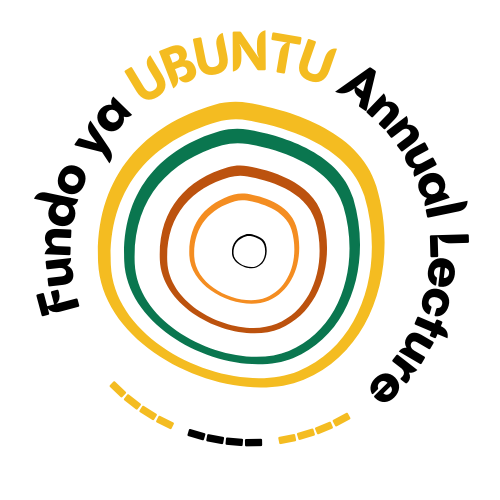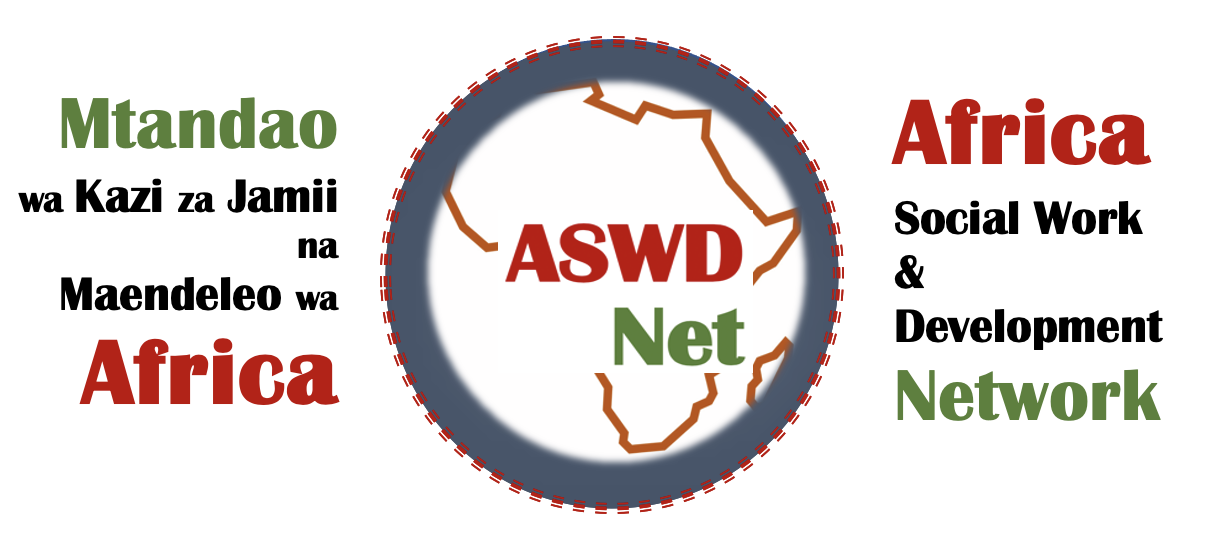Kenya
- History of social work
- Kenya National Association of Social Workers (KNASW)
- Social Work Educational Institutions (SWEIS)
- Association of Social Work Educators in Kenya (ASWEK)
- Template: Roles of associations
- Template: Code of Ethics
- Template: Structure of social development institutions
- Please provide any additional information
History of social work
Acknowledgments: Gidraph Gachunga Wairire, Associate Professor, University of Nairobi
“Social work in the Kenyan situation existed even before the country got independence from the British in the year 1963. However, the type of social work that was there prior to independence is not what we call professional social work per se. The kind of social work that was that of many disciplines but it was geared towards orienting individuals, and building their capacity so that they can actually come and work for people who are in need but of course with the interests of serving the colonisers who were there at that time”, (Wairire, 2021).
- Kenyan social work started with household heads, village elders and rika (age mentors): Since time immemorial, Kenyan society had ways to ensure social functioning, and these exist today although they were impacted by colonisation. Commenting on the traditional version of social work in Kenya, Wairire (2014, p. 94) said “In pre-colonial times, social support mechanisms in Kenya were embedded in the sociocultural practices of different communities. Social responsibilities were clearly defined for different community members through traditional socialisation. Individuals with different needs requiring social interventions were, therefore, helped at the community and individual levels. … household heads and village elders served many of the roles which modern social workers play today, particularly with regard to the enhancement of the social functioning of individuals in the society. Heads and mentors of age groups locally known as rika equally played significant roles that helped an individual or group to manage problems of living”.
- Missionary organisations or charities created by colonial settlers or educated local people joined families and communities in providing social work. One of these was the Jeanes School in Kabete established in 1925 to train village guides.
- The colonial government joined the provision of social services focusing on problems that were prevalent in white communities, and those that could help maintain social worder such as juvenile delinquency, destitution and other urban problems. Government employed people from different disciplines to do welfare related work.
- 1946 – The Jeanes School in Kabete trained social welfare workers (SWWs), later to become community development assistants – CDAs. The School also trained farming, leadership, crafts and domestic work.
- 1960 – Kenya National Association of Social Workers (KNASW) was formed for policy influencing, advocacy and capacity building
- 1962 – Professional social work started in 1962, and this happened through the establishment of the Kenya-Israel School of Social Work. The Kenyan government was given funding by the government of Israel to build workforce within the social development sector to meet the social welfare needs of independent Kenya were adequately met.
- Lates 60s to early 1970s – training relocated to a government institution called the Kenya Institute of Public Administration in Kabete that offered training at diploma level. Professional started at this time. Professional social work means a (1) sound knowledge base, (2) well trained, (3) well defined code of ethics, and a (4) well-defined area of social responsibility.
- 1976 – first training at degree level at University of Nairobi (UoN), a bachelor of social work. The graduates did wonders in the social services sector and training continued. Universities and training institutions increased.
- 1990s – A diploma in social work and social development was introduced at UoN
- 2019 – social work educators have formed an association for Association of Social Work Educators in Kenya to support promote education, research and publish and networking in Kenya, east Africa and Africa.
- Growth of postgraduate education has been slow but there are now two universities offering postgraduate training including PHD. Growth has been impacted by bureaucracy of training institutions among other factors.
“Professional social work means a people with a sound knowledge base, people who are well trained both in practice and theory, people who have a well-defined code of ethics, and people with a well-defined area of social responsibility”, (Wairire, 2021).
References
Wairire, G. G. (2021). Biography of African social work. Interview, 22 March 2021. African Social Work Network (ASWN), Available at https://africasocialwork.net/biography-of-african-social-work/
Wairire, G. G. (2014). The State of Social Work Education and Practice in Kenya. In Helmut Spitzer, Janestic M. Twikirize and Gidraph G. Wairire (Editors), Professional Social Work in East Africa Towards Social Development, Poverty Reduction and Gender Equality, 93 – 107. Kampala: Fountain Publishers.
Kenya National Association of Social Workers (KNASW)
Commitments
- Unify the Social work professionals
- Strengthen, support, and enhance high quality Social work practice
- Promote the development of social work standards and Ethical Values
- Advocate and influence social policy that advance social justice and human rights
- Promote research, capacity building and economic empowerment
Functions
- Promote the professional development and growth of its members
- Nurture and maintain quality professional standards of practice
- Advance, influence sound socioeconomic policy framework and practice
- Provide empowerment opportunities and network services
- Provide services that protect its members and enhance their professional status
- Promote high ethical values in social work practice, training and service delivery
- Promote research, publication, academic forums and professional linkages
Social Work Educational Institutions (SWEIS)
-
- University of Nairobi
- Moi University
- Masinde Muliro University of Science and Technology
- South Eastern Kenya University
- Maasai Mara University
- Kibabii University College
- St. Pauls University, Faculty of Social Sciences
- Catholic University of Eastern Africa (private)
- Daystar University (private)
- Government Training Institute in Embu (diploma)
- Kobujoi Development Training Institute (diploma)
- Several private institutions offering diplomas
Association of Social Work Educators in Kenya (ASWEK)
Vision
To be the global pacesetter in the provision of quality Social Work Education, Training, and Research for a more impactful social work profession.
Mission
To create and maintain a motivated, supported, highly skilled, qualified, adequately resourced, and empowered network of Social Work Educators and Programs in Kenya.
Teaching is a profession and Social Work educators and trainers play a vital role in the collective responsibility to prepare future generations of social workers. Accordingly, to make this a SDG, greater support and resources are needed for relevant initial and continuous professional development, efficient and effective policies, decent working conditions, and opportunities for sharing promising practices, professional autonomy and career pathways for Social Work Educators
Key objectives
- Research
- Inter-Universities’ exchanges and Collaborations
- Continuous Professional Development
- Academic mentorship
- Publishing
- Influencing Policy
- Knowledge sharing
Template: Roles of associations
Template: Roles of a professional associations of social workers
- Creating a code of ethics relevant to Africa: To create a code of ethics guided by African values that have been used to provide social services since time immemorial.
- Societal recognition: make social work known in families and communities including what social work is in local language, the roles of social workers and how the complement not replace or compete with the roles of families and communities. Presently, in most African communities, social work is not understood and at times it is hated because of its focus on western ideas, knowledge, philosophy, theories, methods and literature.
- Creating a local definition of social work: to help social work being understood and appreciated. Definitions in local languages will be more useful.
- Creating relevance: making social work in Africa more developmental to enable it to respond to the social issues, challenges and problems on the continent. Social work has to respond to mass poverty in a developmental not remedial way.
- Professional recognition: To raise social work to the level of other professions, and to give social workers respect and recognition of their service.
- Professional regulation: Ensure that social workers follow ethical principles that make them accountable for any professional misconduct, breach of ethics or confidentiality.
- Professional standards: To oversee social worker’s performance, attitude towards families, communities, peers, profession and the society. This builds trust and ensures credibility of social work.
- Training monitoring: To monitor social work training and fieldwork.
- Produce literature: To research, write and publish relevant literature for social work training and fieldwork.
- Advocacy: To advocate for social justice and social services.
- Continuous training: To lead continuous professional development (CPD) of social workers and all people providing social services. This is important especially for social workers trained in the colonial period, those trained using colonial syllabus or those trained outside Africa.
- Supporting and empowering indigenous services: To support families and communities in their roles of providing social services and not disempower them.
- Trade unionism: Act as the trade union of social workers to represent their interests and labour rights as workers, entrepreneurs, volunteers and social innovators.
- Consumerism: protect families, communities and employers from poor services from social workers, receiving complaints and dealing with them.
- Collaboration with other associations: Work and collaborate with other professional bodies in the country, in the region, in Africa and globally.
- Policy work: Creating policies or alternative policies to advance social development and to scrutinize existing policies of the government.
- Recognising social workers: Celebrate social workers through national social work day, global social work day and providing awards to social workers, students, academics and social work organisations.
- Networking: providing opportunities for social workers to network, share experiences and listen to others through indaba, conference, webinar, newsletters, journals, websites, social media e.g. groups of Facebook or WhatsApp, dinner etc
- Decolonising: To decolonise social work to make it relevant to Africa communities, this work involves, among others
- Using African philosophy, including values, ethics, theories, models etc
- Using African ethics and removing colonial ethics
- Using African literature and removing colonial literature
- Using African academics and replacing non-African academics
- Using a home grown syllabus, and replace colonial syllabus – in the process avoid brain drain
- Using and valuing African methods, techniques and strategies of social work and not non-African methods
- Valuing African history of social work and Africans who have contributed to that history
- Contributing African knowledge and methods to global social work and not just receiving global knowledge without scrutiny
- To educate families, communities, organisations and government about how to remove colonial practices, methods, knowledge etc from the social work services that they provide
- Generally, make African social work more developmental in approach so that the profession becomes relevant to our families, communities, organisations and government
Template: Code of Ethics
Guiding Principles for Social Work Codes of Ethics
Each country (actually most) countries have created or adopted a Code of Ethics for social work. Most codes were developed from a colonial point of view and should be revised. In case where there are no Codes, they should be developed. In revising or developing ethics codes, the following broad principles apply:
- Ethics are not universal, if we have to use ethics from other societies, then this has to be acknowledged, and it has to reciprocal, meaning we can’t borrow more than others are borrowing from us, and we cant be forced to borrow what does not fit our situation.
- However, even if we use adopt ethics from others, we should have ours that are original.
- Ethics should be based on a society’s philosophy and values.
- Ethics and ethics codes that resulted from colonisation or neo-colonisation should be revised.
- Ethics apply in training and education; publishing and research; and practice; collaboration; leadership and administration.
- Ethics should be expressed and written in a language understood by the people we serve.
Specific ethical principles
- Philosophically grounded ethics.
- Decolonised ethics.
- Indigenous ethics.
- Developmental ethics.
- Appropriate language.
A code of ethics should contain the following:
- The philosophy on which the ethics are founded.
- A list of the values from which the ethics are derived.
- A list of the principles on which the ethics are created and will be implemented.
- To whom the ethics apply.
- Sanctions that will be applied when ethics have been broken.
- How those sanctioned will appeal.
Philosophy
African ethics are founded on Ubuntu philosophy. Ubuntu applies at these levels:
- Individual level
- Family level
- Village level
- Community level
- Society level
- State level
- Continental level (African level)
- Global level
Values
| Level of Ubuntu | Examples of Values | I shall abide by the following ethics in my learning, teaching, practice, research, collaboration, leadership or administration: |
| Individual level | Upenyu – valuing life Shosholoza – resilience Kuumba – creativity Ushavi – workmanship, enterprising Unyanzvi – professionalism Sankofa – look back to inform the present and future Ruremekedzo or Heshima | I shall not cause harm, disease, impairment or loss of life. I shall promote resilience. I shall promote creativity not imitation I shall conduct myself professionally. I shall value history in my work. I shall be respectful. I shall promote entrepreneurship and hard work. |
| Family level | Umhuri – familyhood, blood relations Ukama, Harambee – familyhood, blood relations Musha – permanent home in ancestral lands | I shall protect families and marriages. I shall promote best interests of the family in the work that I do. I shall value blood relations. I shall value people’s permanent homes. I shall value people’s ancestral lands and heritage. |
| Village level | Kagisano – good neighbourliness Ujima – collective responsibility Kuumba – mentoring | I shall promote harmony. |
| Community level | Ujamaa – familyhood or communityhood Simunye – strengths in numbers, we are one | The ethic is promote cooperation and collectivism. I shall promote justice. I shall respect local protocols. |
| Society level | Umuganda – service to others Ururami, Ubulungiswa, Ubutabera – justice Itorero – good members of society, and a strong sense of cultural values and leadership skills Umoja – unity, peace and harmony | I shall promote oneness. Where harm has happened, I shall promote fair compensation. I shall promote empowerment not dependence. I shall respect cultures. I shall be a good leader. I shall promote unity, peace and harmony. |
| State/country level | Ubunyarwanda – nationhood Utungamiri – leadership | I shall promote good leadership. I shall promote people-centered leadership |
| Continental level (African level) | Uhuru – liberty/independence/freedom Urithi, Nhaka – inheritance | I shall promote independence |
| Spiritual level | Uroho – spiritual connectedness | I shall promote holism/Wholism. I shall promote spiritual connectedness. |
| Environmental level | Umachobane – sustainability | I shall promote sustainability. |
| Global level | Ururami, Ubulungiswa, Ubutabera – justice Umoja – unity, peace and harmony Uhuru – liberty/independence/freedom Ujima – collective responsibility Kurutsisa – decolonisation | I shall promote justice. I shall decolonise my practice research and learning. The ethic is liberate and protect African liberation. |
To whom ethics apply:
- Student social workers
- Registered and unregistered social workers
- Lecturers
- Researchers
- Leaders e.g. supervisors, managers, administrators and directors
Some ethics will apply to
- Training administrators who are not social workers
- Librarians who are not social workers
- Research leaders who are not social workers
Monitoring ethics
- Each person shall be responsible for ethical conduct and shall self-report in case on breaches or seek advice to prevent breaches
- Each person shall look after another, advice and report
- Each association shall look after members
- Each country or state shall
- Each community shall
- Each client shall
Sanctions
When an ethic has been breached sanctions include:
- Compensation
- Re-training
- De-registration
- Suspension
- Asking for forgiveness
- Restitution
- Court trial (from family court, village court, community court, state court, African court or global court)
- Dismissal from work
Appeals
The appeal can be done to reduce the sanction, compensation, sentence or judgement.
Template: Structure of social development institutions
Template: Structure of Social Development Institutions
Institutions of social work or social development are structured differently in each country. Below we provide a list of institutions that are necessary.
- Schools of Social Development or Social Work
- Association of Schools of Social Development
- Association of Students of Social Development
- Association of Social Workers or Social Development Workers
- Association of Educators of Social Development or Social Work
- Association of Fieldwork Educators or Supervisors
- Association of Public Social or Development Workers
- Public Regulator of the Profession
- Association of Community Workers or Community Development Workers
- Association of Family Workers
- Association of Environmental Social Workers
- Association of Spiritual Social Workers
- Alumni Associations
Please provide any additional information
If you have information on social work and development about this country, please email asw@africasocialwork.net




These cookies allows you to comment on posts and pages.